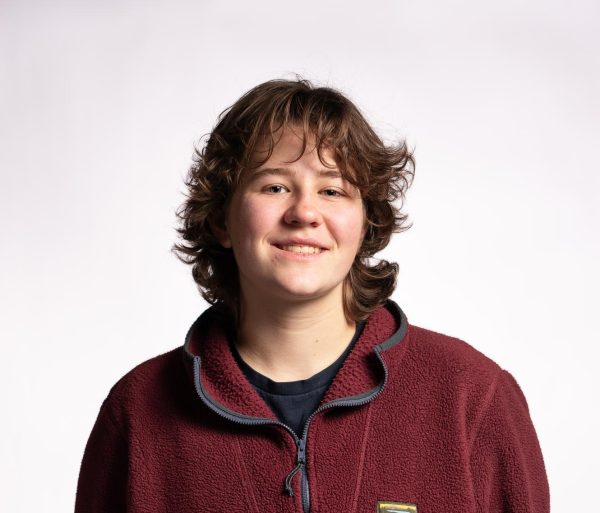F sharp. G sharp, C, F sharp. One haunting chord ringing through the auditorium, sustained through a single fermata. A slight crescendo into an explosive phrase, saxophonists furiously blowing into their instruments. The clash of harmonies, melodies, tone and timbré — all on a single sheet of paper. Sitting on his bed, junior Yueheng Wang creates melodies and harmonies, weaving together entire orchestras through the scratch of a pencil against sheet music. Should he write in another hairpin dynamic, continuing the phrase? Or would it be better to fade into virtual silence, allowing the bassist to play an ethereal solo accentuated by slight pizzicato? The possibilities of musical composition are endless, which is exactly why Wang craves it. As a trumpet player, pianist and composer, he has an endless desire to learn and write as much music as is physically possible.
“[My musical composition journey] started with me just sitting at the piano improvising, and then listening to other composers and wanting to create my own music,” Wang said. “It wasn’t like some inspiration was beamed into me — it actually started with a competition that I wanted to join, and there was a cash prize for $200. I joined, and ended up getting [the money]. It didn’t start off as a passion, but it developed into one.”
Wang has found only a meager musical community at Ladue. However, he has been able to collaborate with senior Ovya Diwakaran, a composer herself. The two met at University of Missouri’s compositional festival June 2023.
“We’re in different grades and we run in different circles, but because of composition, we’re friends no matter what,” Diwakaran said. “Sometimes he’ll [bring] scores for me to look at and we’ll just talk about that stuff. There’s an automatic understanding between us.”
Music allows Wang to express emotions in a medium separate from language. When working, he enters a meditative state and pulls on his composition socks. These are teal and ankle-length, featuring small yellow dinosaurs.
“The process of composing is different for everyone,” Wang said. “For me, I have a lot of pre-compositional thinking. Before I write anything down, I’m just laying in my bed and thinking, ‘What do I want to write about?’”
Wang self-studied compositional techniques from third to seventh grade, when he started working with an instructor at Webster University. His style is constantly changing — as a result, many ideas don’t come to fruition.
“[Disappointment] happens every step of the way,” Wang said. “It has never gotten easier because I’m always trying to experiment. With each [composition], knowing when to discard an idea is just as important as knowing when to continue it. Sometimes I have an idea and it snowballs because I really like it but it just does not work in the piece. I keep writing, keep writing and there’s no way I can make it work. Knowing when to stop [is] one of the challenges.”
While 14 of Wang’s pieces have been professionally performed, he has written over 100. Orchestra conductor Twinda Murry admires the uniqueness of Wang’s pieces. She first recognized his love for composing in 2023 and has enjoyed seeing him blossom through his work.
“[Yueheng] is taking a chance on adding in some different colors, with slides and things that aren’t common in orchestral music,” Murry said.
Unusual compositional techniques present in Wang’s work are the result of where he draws inspiration from.
“I find music in objects,” Wang said. “You can recreate [any sound] with objects. One time, I was sitting in a classroom, and it was super silent but there was rummaging [of] stuff. It sounded like a percussion ensemble, and I wanted to recreate it. The world just became musical [to me].”
When in a musical slump, Wang reads to stimulate his ideas. He even thinks about composition while sleeping, dreaming of melodies only apparent to the subconscious brain. Additionally, as a first-generation Chinese-American, Wang is often influenced by his own heritage.
“I like using traditional harmony and rhythms, but not just from my own culture,” Wang said. “I like watching different cultures’ music and getting influenced by that.”
Murry enjoys seeing how various cultural aspects affect and elevate the compositions Wang produces.
“I encourage [Yueheng] to continue to explore the music that he connects with, from his heritage, and then see how he can combine that with Western music and contemporary music,” Murry said.
Some classical composers shun modern genres, which rely less on a music theory education. Wang doesn’t feel the same. He even creates pop songs and rap beats and hopes to release on Spotify soon. Additionally, Wang dreams of composing a film score later in his career.
“I’m not a music elitist,” Wang said. “I think all music has value. [Take] Taylor Swift — the production on that is a culmination of music knowledge. Some people say, ‘Oh, it’s not elite enough.’ But you have to think of the purpose, of why she wrote that piece and how she executed it. With art, that’s all you can ask for — the artist’s vision and if they did it well or not.”
When composing, the process of selecting instruments is no easy task, forcing Wang to draw from years of theory education. Timbré, the unique sound an instrument creates, is an example of one such criteria he looks for.
“I choose instruments based on the timbré and their technical ability,” Wang said. “For example, a piano’s timbré is very different from a violin’s. When I think of a piece, if I want something that sustains, I won’t pick piano. If I want percussive attacks, or other things you can do with a piano, I’ll pick piano.”
Despite his love for music, Wang recognizes how hard it is to thrive in such a subjective field. At competitions, for example, judges have preconceived notions of music they enjoy because they are composers themselves. However, Wang has found a way to push through and find internal value rather than relying on external validation.
“What are you composing for if you’re comparing [yourself] to other people?” Wang said. “Are you composing for yourself or are you composing for how other people see your music? That feeling is terrible. [But], sometimes I think, ‘I’m not doing this for other people.’ It’s a very liberating feeling. I’m a composer, I can do what I want. I’m making sounds that I want to hear; I don’t care about other people’s opinions.”
Wang hopes to pursue music in college, with conservatories such as The Juilliard School and New England Conservatory of Music as his top picks. He’s already been successful — Wang learned March 1 of his acceptance into the Juilliard Summer Composition program, a two-week intensive in New York City with only 30 spots for applicants worldwide. The program aims to develop young composers’ techniques while connecting them with world-renowned musicians. However, despite these successes, Wang remains uncertain of the conservatory path.
“Johns Hopkins has a really good music school,” Wang said. “So, I could major in music and minor in something that will make me money. But, the difference between conservatories and universities is [that], at conservatories, your life is to compose. At universities, there’s a big social [aspect] too. You have to learn other things and you’re surrounded by a diverse cast of people. At a conservatory, everyone has the same goal as you.”
A conservatory’s application process is different from a university’s, as applicants submit their compositions for consideration. But, even after secondary education, Wang is concerned about his future in the music industry.
“There’s this quote that goes, ‘If you do what you love, you’ll never work a day in your life,’” Wang said. “I don’t know if I agree with that, because there’s a counter to that, which is, ‘If you do what you love as your job, you’ll start liking it less.’ I do want to do music as a job for the rest of my life. But, I worry about what that will do to my love of [music].”
In a society that values monetary gains, it’s hard to break out in such a subjective field. However, Wang has already recieved accolades for his compositions. “Naked Trees” placed first in University of Missouri’s Creating Original Music Project and Wang won cash prizes for both himself and Ladue. The piece was played in a The University of Missouri School of Music concert April 20.
“I want to make a living off of composing, but it’s really difficult,” Wang said. “You have to be really good at networking and expand your web of influence with people [to] get connections, gigs and jobs.”
Some composers alter musical norms to satisfy modern interests due to this reliance on relationships. Wang especially notices this with a piece’s form — how long the music stays on one idea and develops into another.
“With the commodification of music, [form] has been lost,” Wang said. “A lot of songs don’t even have bridges now. And, that’s not comparable to avant-garde, people wanting to break the mold of music. No, it’s to accompany people’s short attention spans.”
However, Wang draws a distinction between this and novel styles of music. One example is John Cage’s infamous “4’33’,” whose score contains no notes or markings whatsoever — it is music totally devoid of sound.
“If you make a [piece] that’s only silence, that’s super easy to make, but who has thought of it and did it?” Wang said. “John Cage thought of it and did it. No one before him did. That, to me, is groundbreaking. [John Cage] is defining music.”
Wang admires composers such as Maurice Ravel, Francis Poulenc and Anton Webern, but recognizes that classical music has declined in popularity. He hopes to dismantle these negative stereotypes.
“I want to make a change in how we view music and how we create music,” Wang said. “The majority of [teenagers] don’t like classical music. I want to find a way to bring it back — not just by taking the old [but] by adding modern influences and making it popular again.”
These aspirations often alter Wang’s compositions.
“[Yueheng’s] thing is always pushing the limits of sound and trying to write music that you haven’t really had before, this modern 21st century music,” Diwakaran said. “That is a huge influence for me, because I’ve never really thought to do that before.”
While a composer’s journey may be difficult, Wang is prepared to brave whatever challenges come his way.
“Right now, I could take any other path pretty easily; I could just not do music,” Wang said. “But, I just have this deep yearning to understand it more, study it. So, I’m just following my passion and seeing where it leads me. I’m not thinking about [whether] I’ll be successful or rich. I’m just trying to do what I love.”



![Junior Yueheng Wang's piece, “Of Mountains and Seas,” is played by Ladue High School's top orchestra and band classes April 4. He wrote it in June 2023, drawing inspiration from an ancient Chinese novel titled “Classics of Mountains and Seas.” Wang’s parents and compositional teacher sat in the audience to support him throughout the performance. Many of Wang’s friends, who played the piece, also showed their encouragement. “A lot of my friends were really enthusiastic — [especially] the wind players,” Wang said. “A lot of them would come up to me, [would] want me to help them and would come to seminar every day. It was such a group effort, and it felt like a relief that [the piece] was in good hands.”](https://laduepublications.com/wp-content/uploads/2024/02/7K9A1472.jpg)
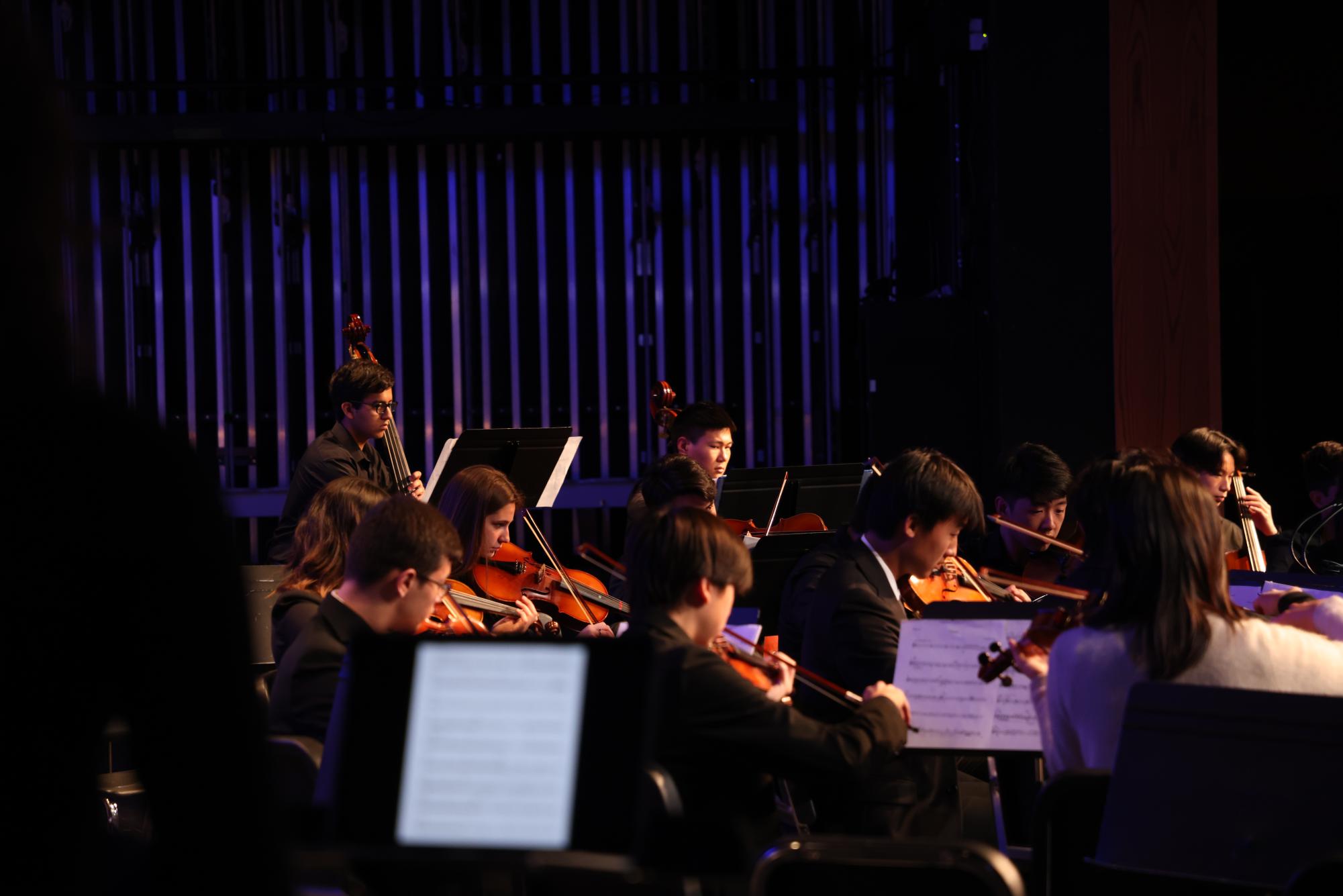
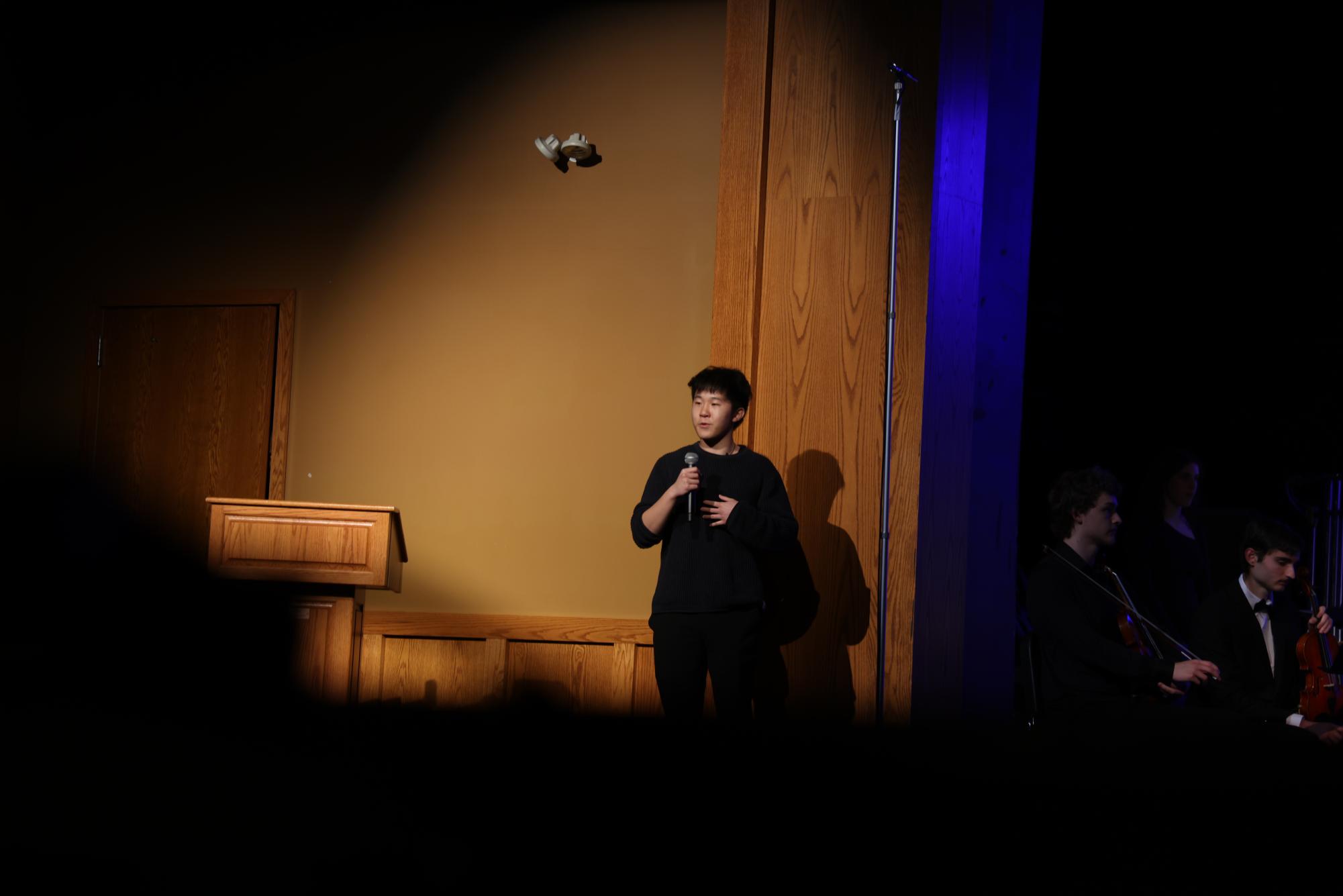
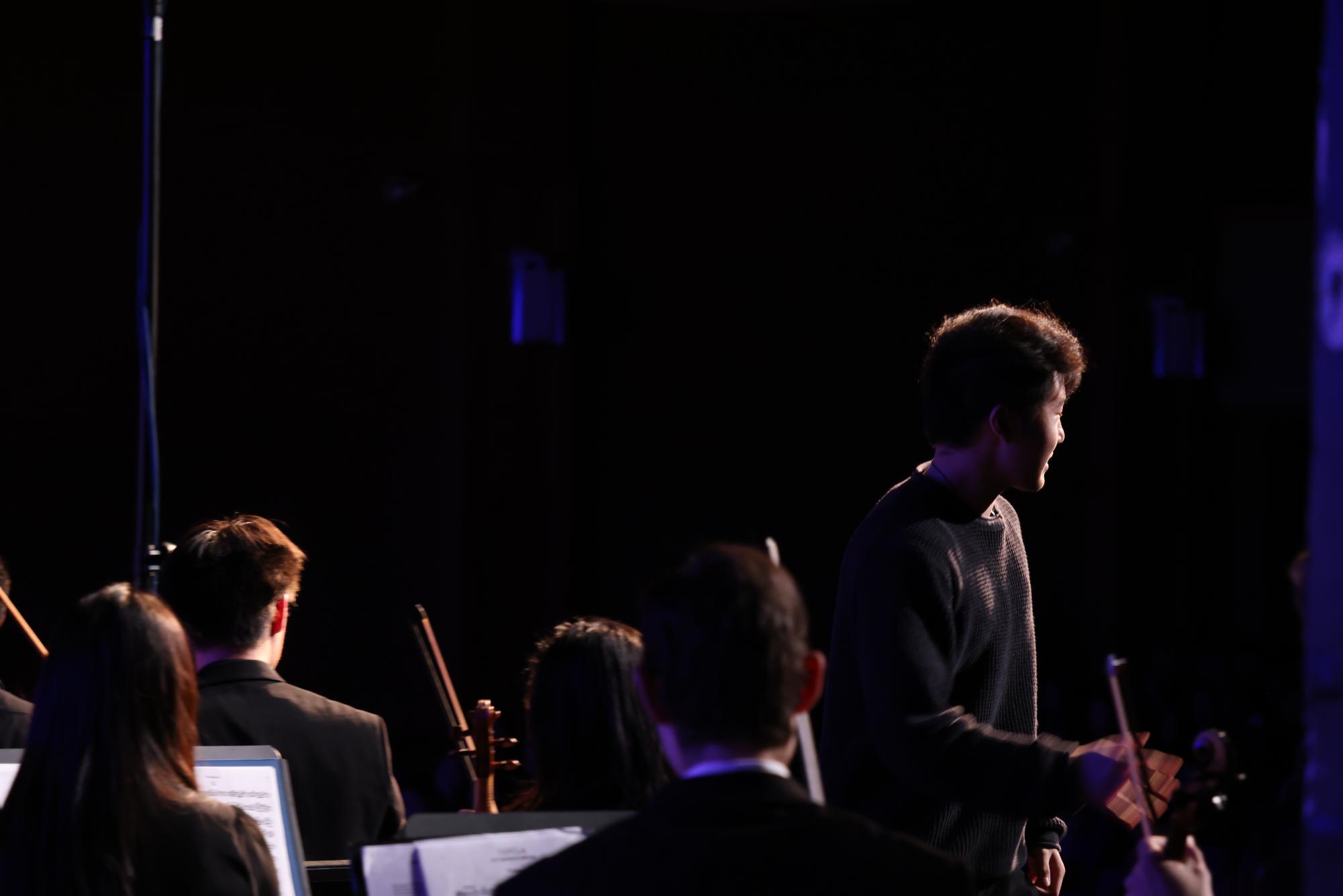
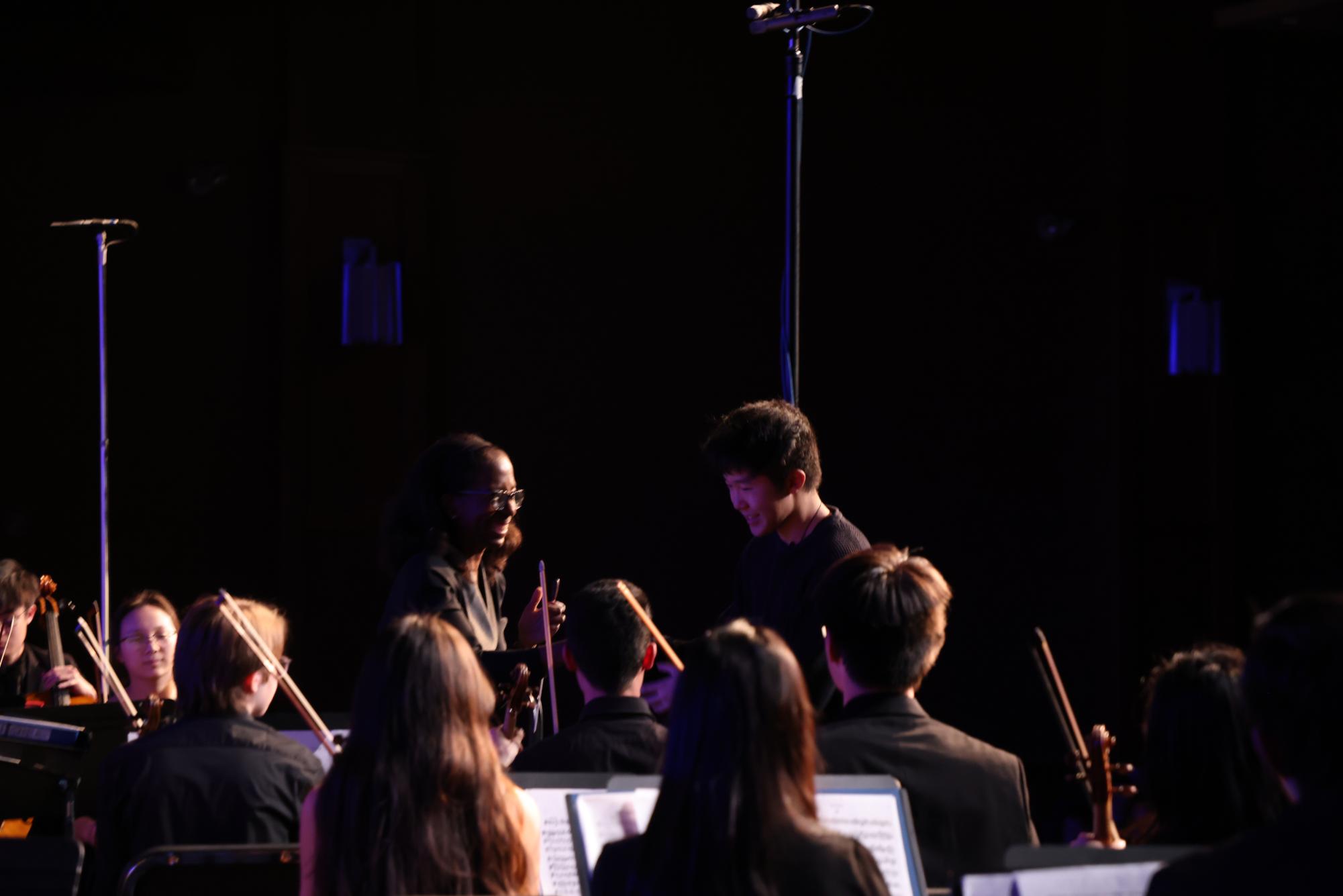
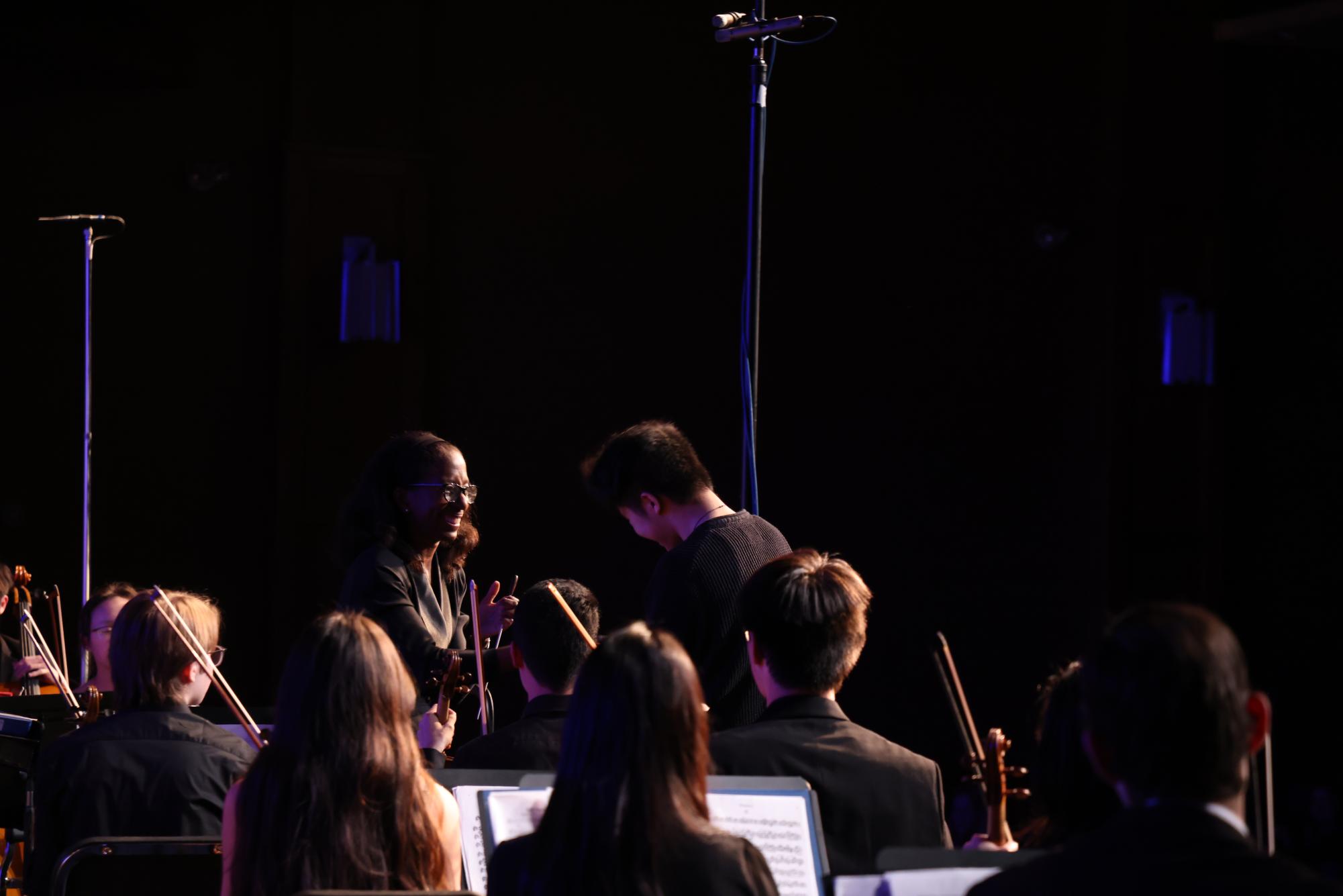
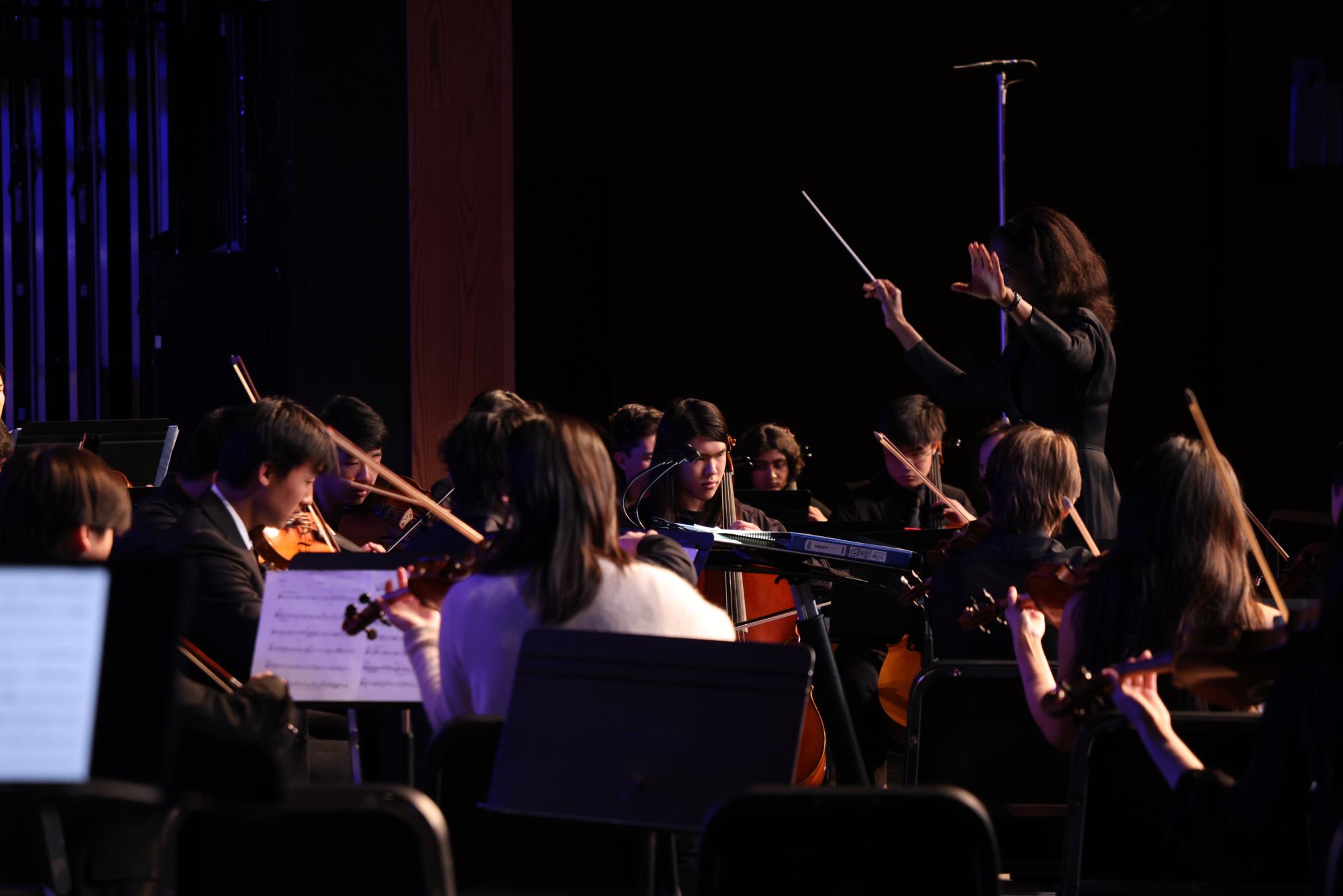
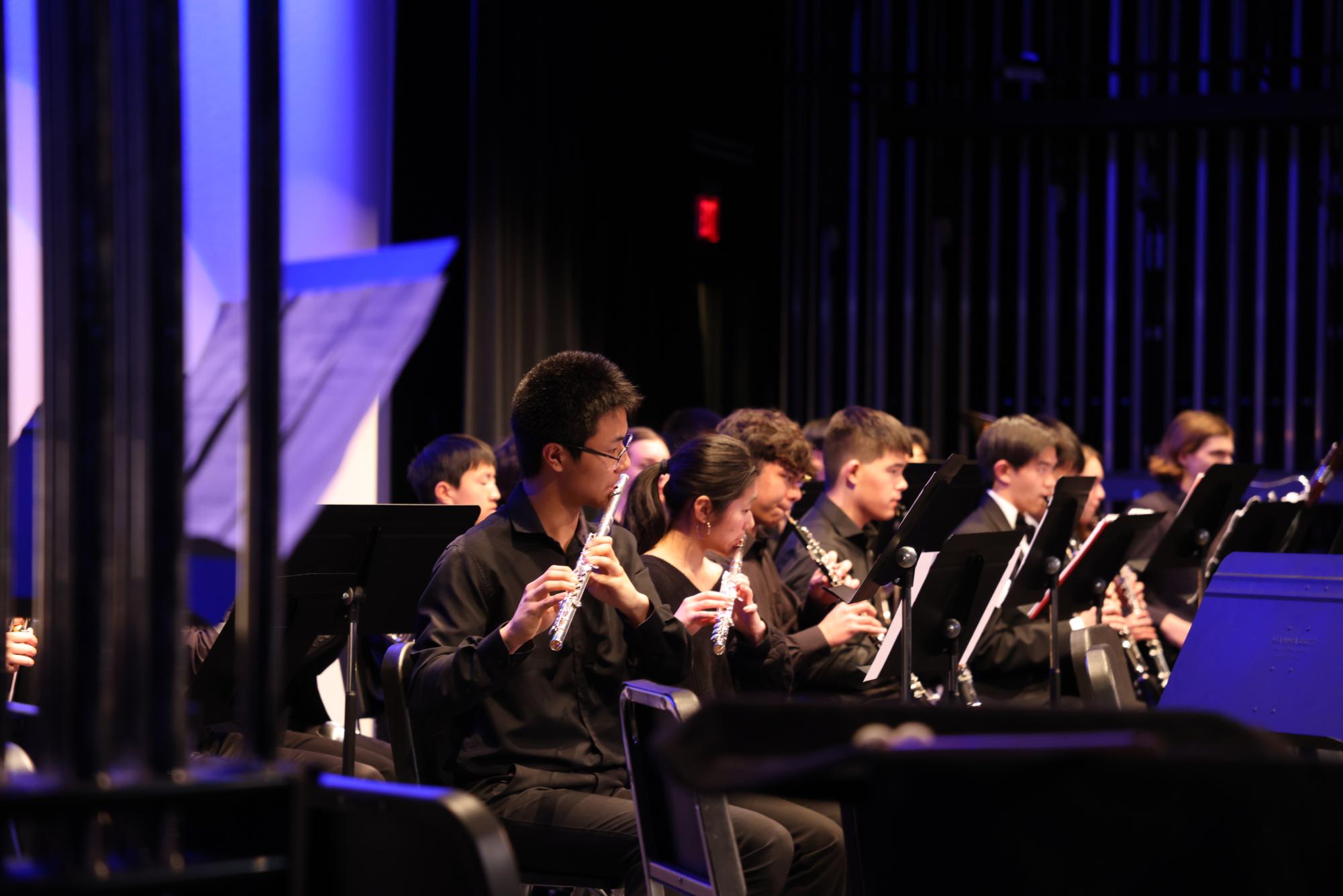
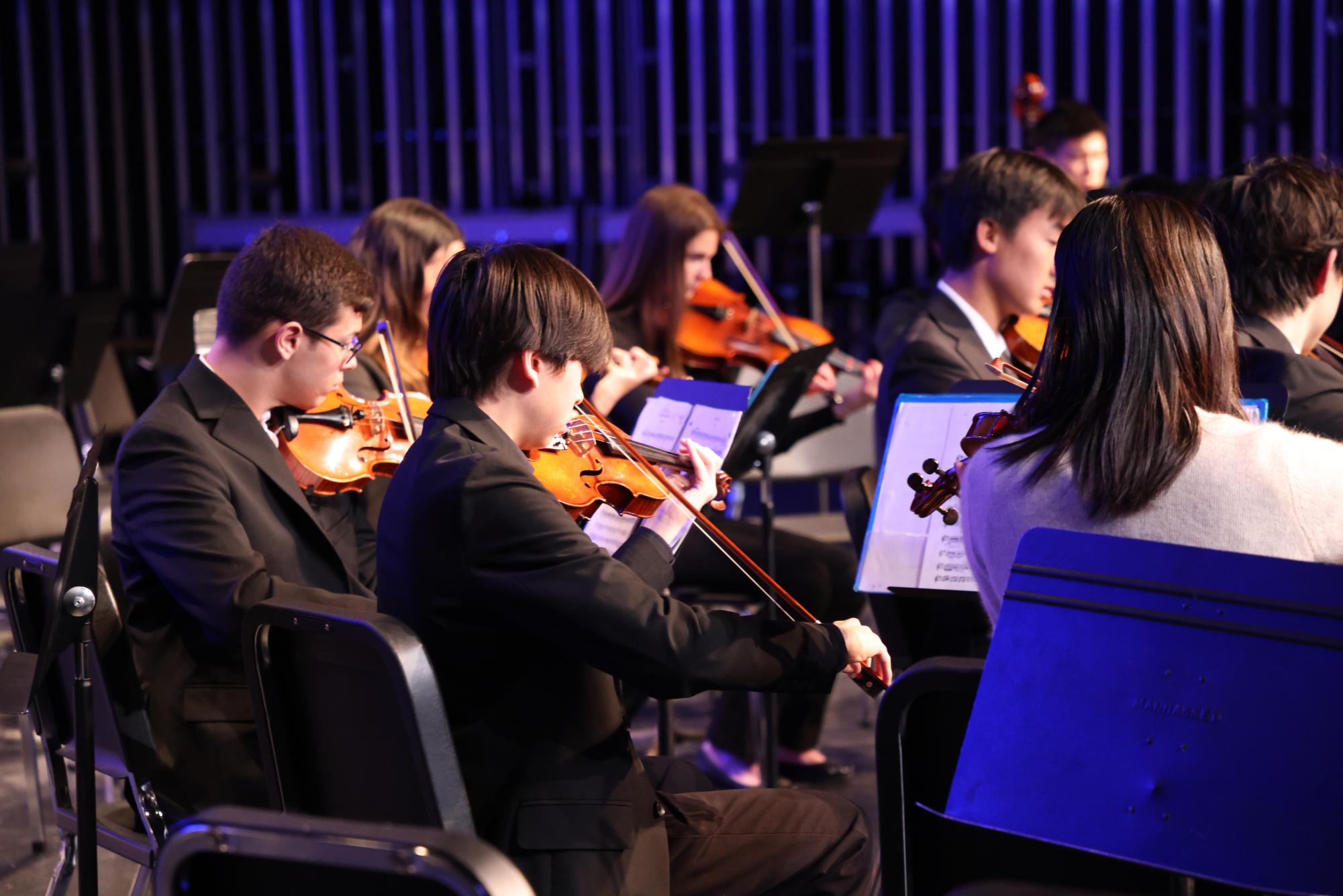
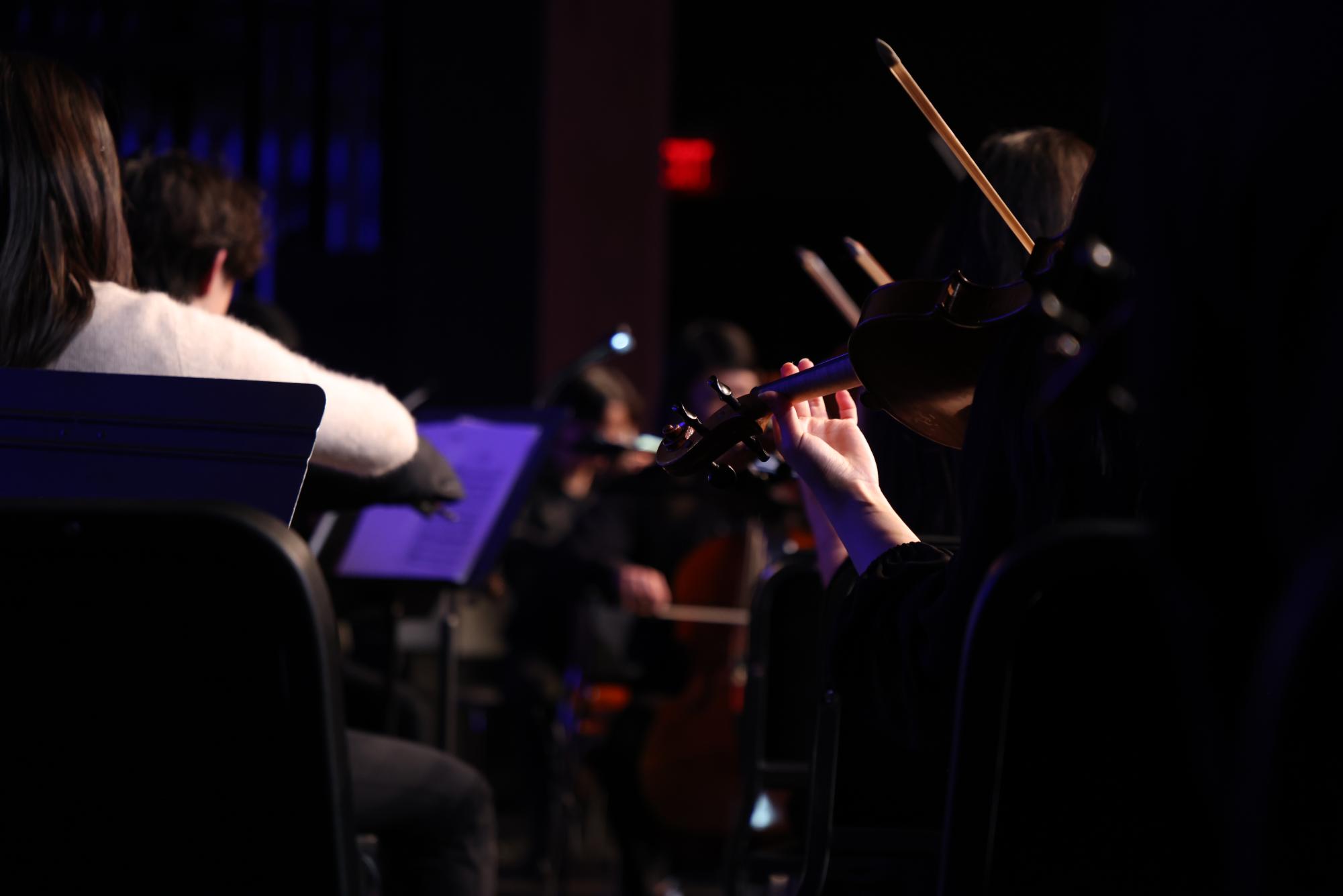
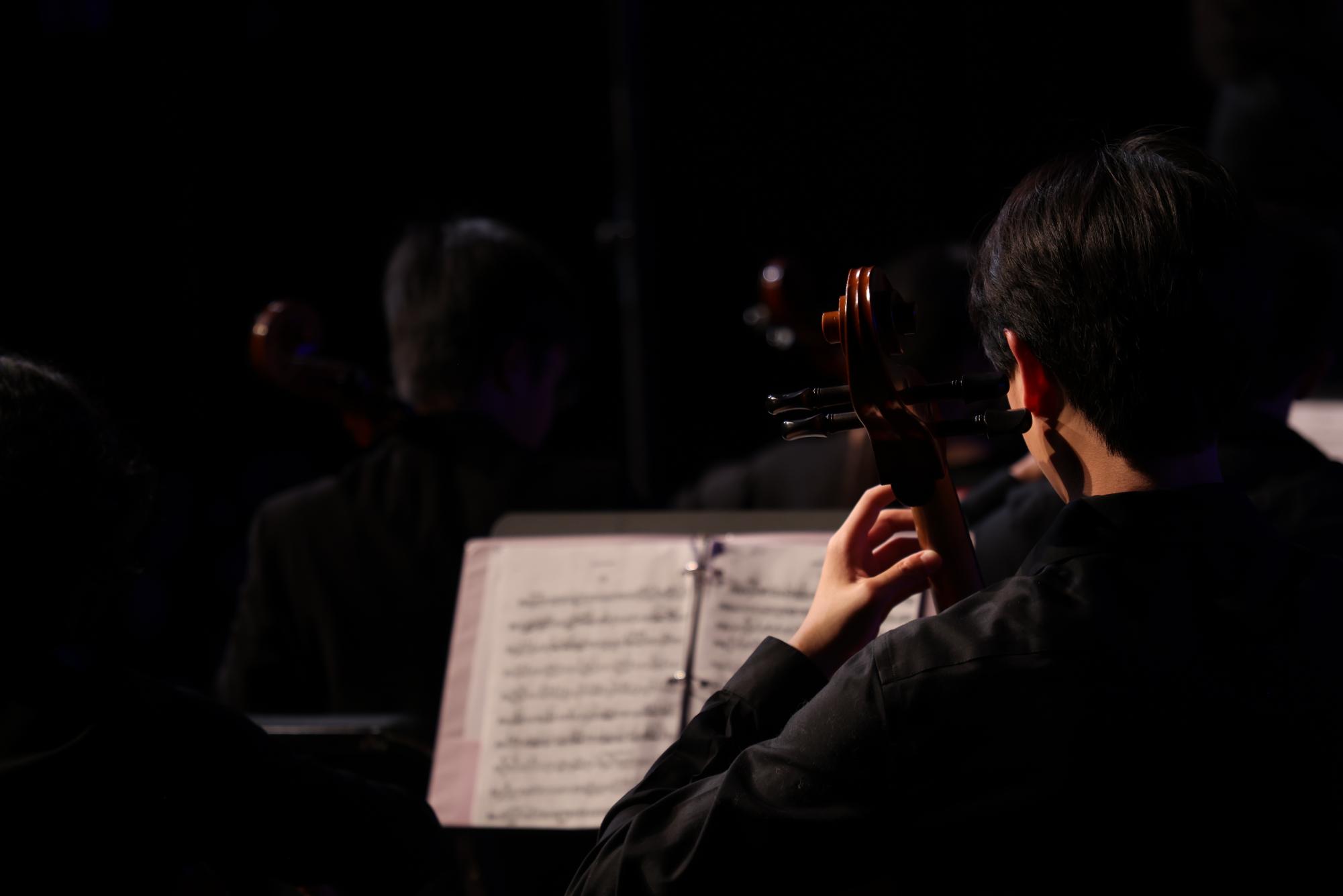
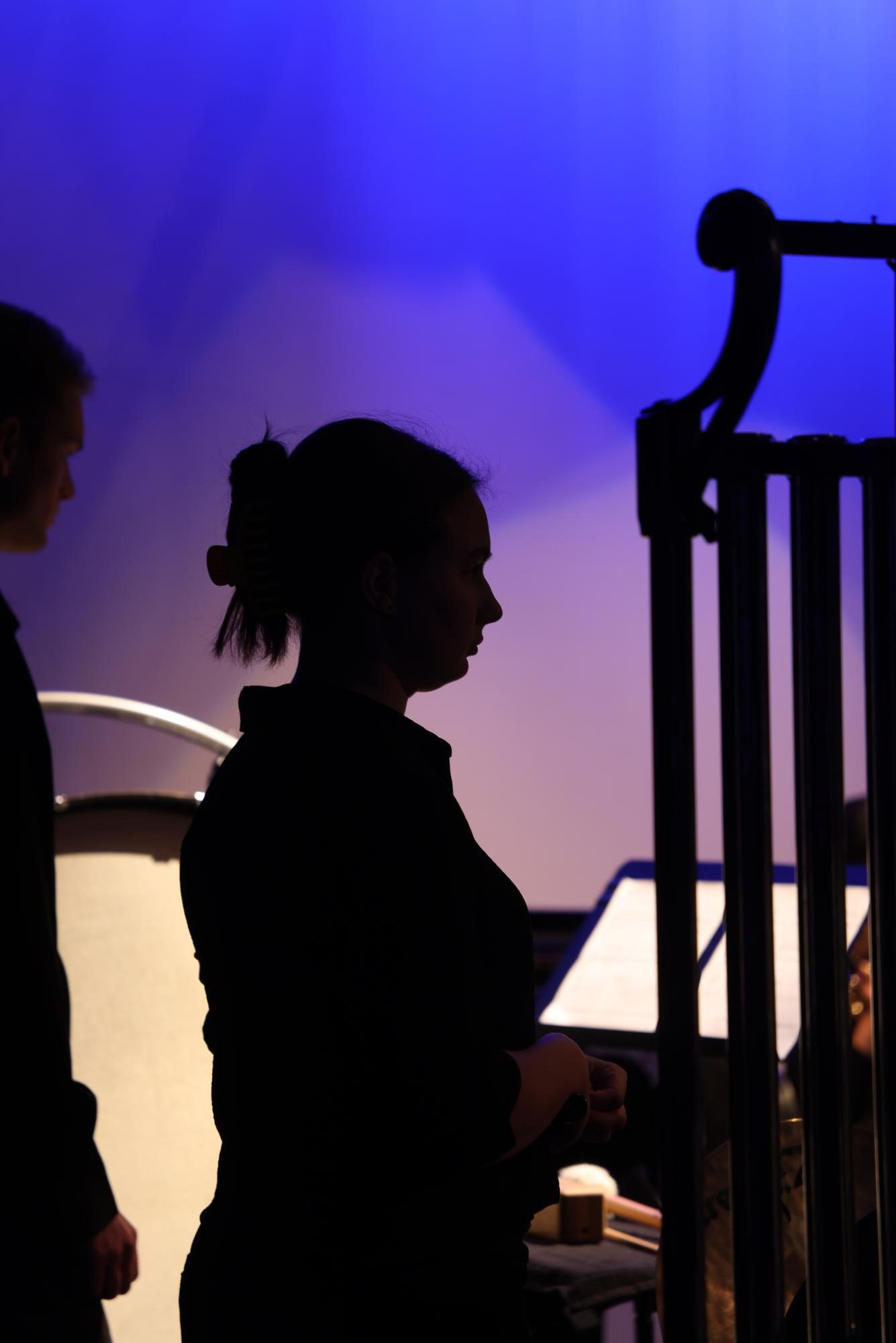
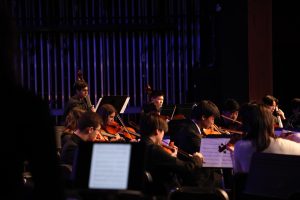
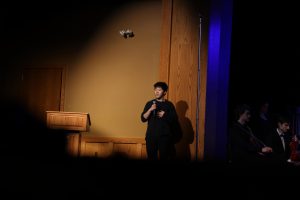
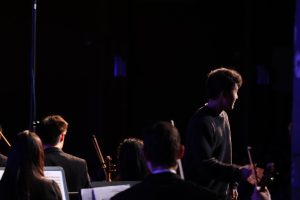
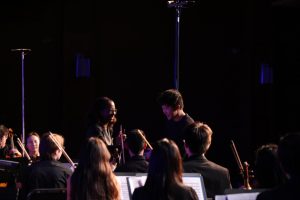
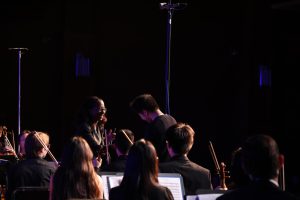
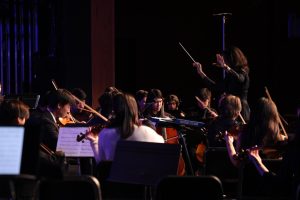
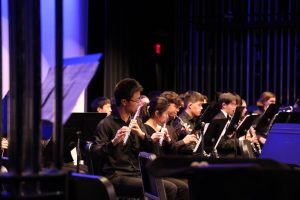
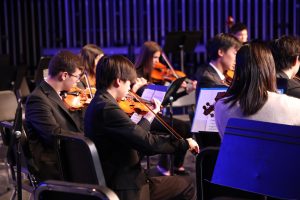
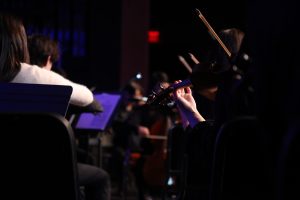
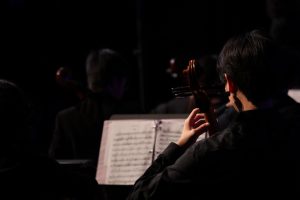
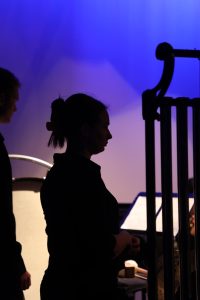
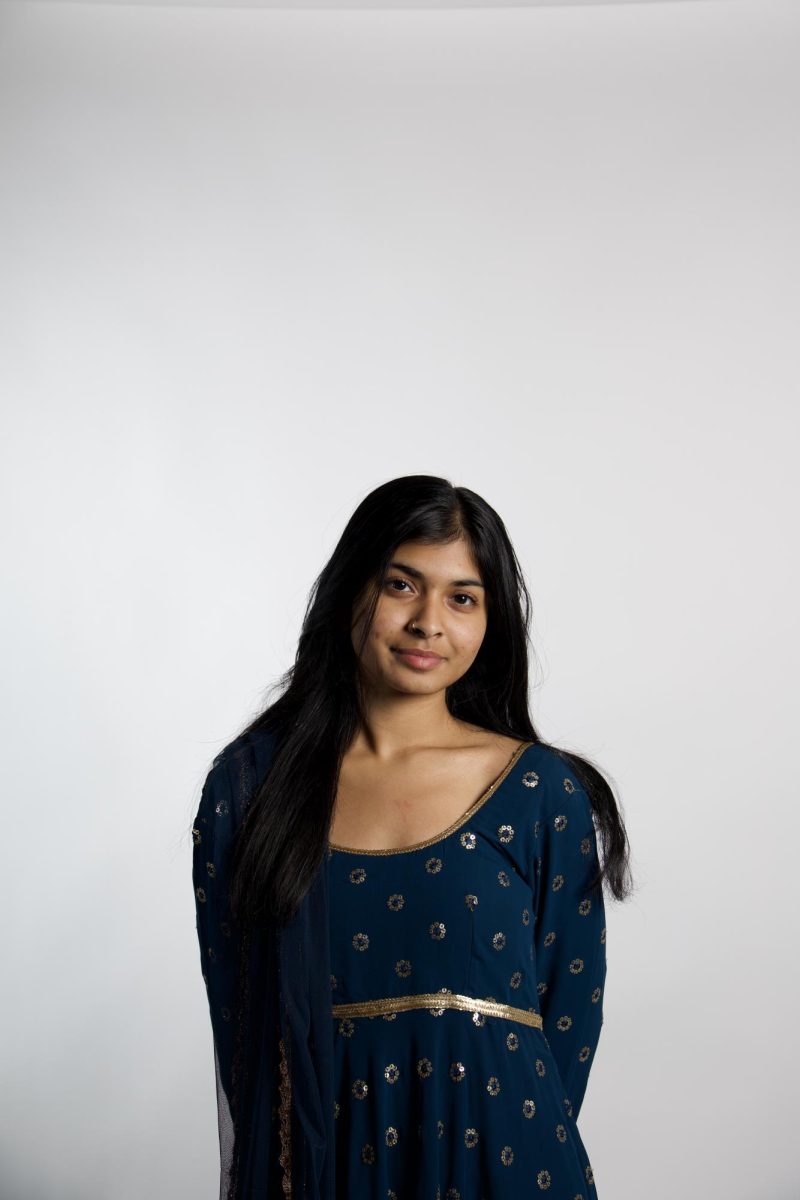

![School resource officer Rick Ramirez sits in his office. He usually spends little time in his office throughout his day of work, focusing on other issues. “Where our students are, I try to be,” Ramirez said. “Sometimes I get off at 2:45 p.m. when nothing’s going on, or sometimes I get off at 10 p.m. [Those are] my hours.”](https://laduepublications.com/wp-content/uploads/2024/12/Hsiao_20241203_ID_RickRamirez_007-799x1200.jpg)
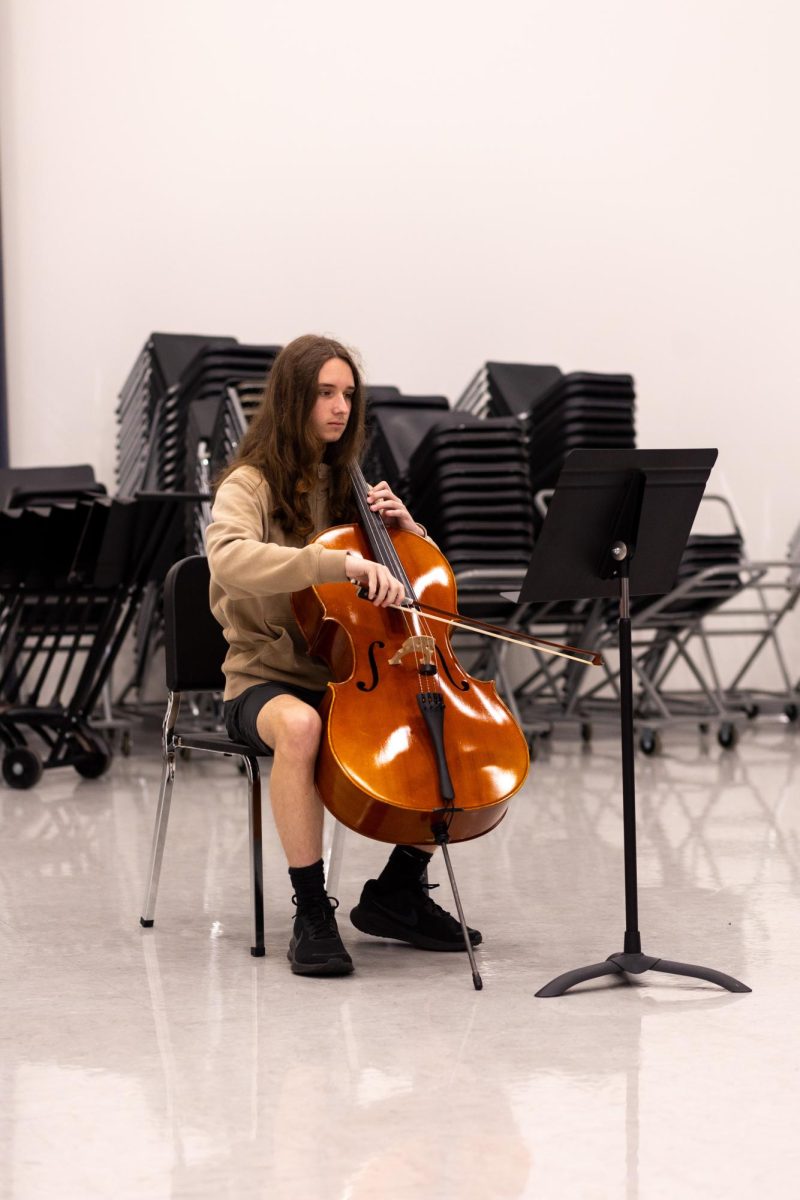
![Reva poses in front of her home and address plaque. After reuniting with her father and grandparents, she has made many new memories and retained her culture. “We have a lot of Indian cooking going on,” Reva said. “I also like telling people about Indian food, mainly because that’s something that really connects me to [Mumbai].”](https://laduepublications.com/wp-content/uploads/2024/12/At-Home-1200x799.jpg)


